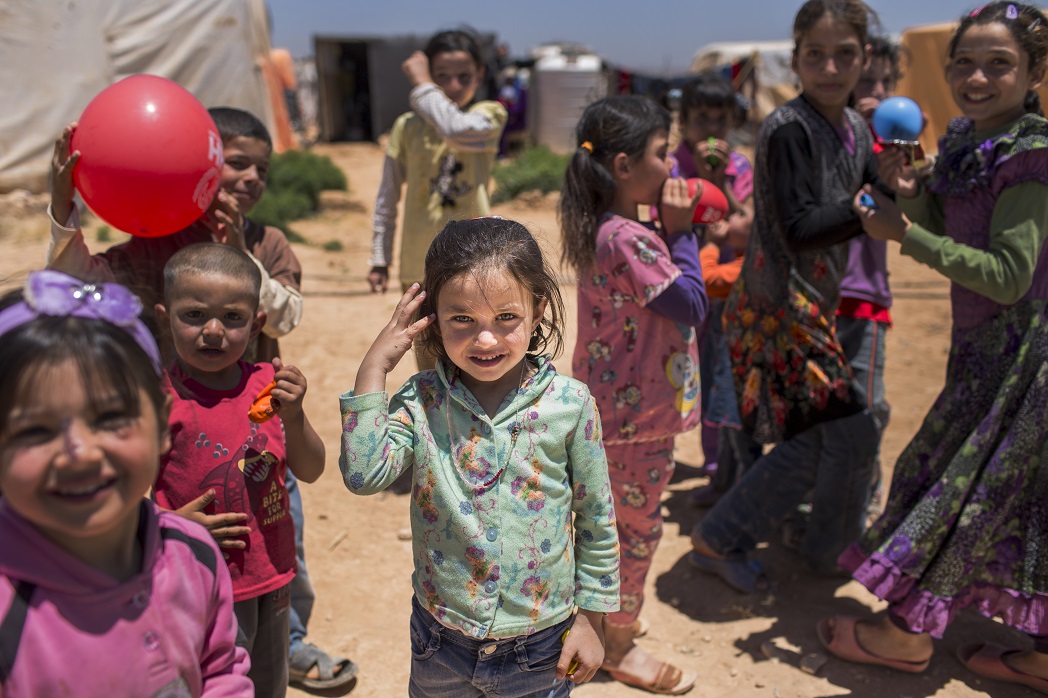At the beginning of 2020 Turkey continued to host the largest number of refugees from neighbouring countries worldwide. According to the latest UNHCR statistics, there are nearly 4.1 million refugees of different nationalities in Turkey, including 3,628,120 Syrians; this is on top of 400,000 asylum-seekers and refugees of other nationalities, mainly from Afghanistan, Iraq, Iran and Somalia. Under Turkish law, these refugees have international protection and are entitled to a broad range of rights once they have registered with the authorities.
Digging further into these huge numbers, over 98 per cent of refugees in Turkey live in urban areas outside camps and, of these, 70 per cent are children and women. These numbers translate into real challenges for Turkey, manifesting themselves predominantly as pressure on the country’s national resources, the services available to refugees and the host communities in which they live.
The state institutions in Turkey are making huge efforts to address these challenges. These initiatives are being undertaken despite the protracted nature of the refugee problem and the problem of not knowing when the refugees will be able to return to their homes. The situation calls for long-term solutions and significant support from the international community and development partners in helping Turkey include refugees and asylum-seekers in its national structures and programmes.
The Government of Turkey has been leading the response to the refugee crisis, with the UNHCR supporting its efforts as the co-leader of the Regional Refugee and Resilience Plan (3RP), including coordinating the efforts of humanitarian agencies and development partners and providing direct operational support, capacity building and technical advice to Turkish authorities.
The UNHCR has also been coordinating the efforts of UN agencies and other partners in supporting Turkey’s response to the refugee crisis in order to avoid duplication and gaps in the international assistance provided. The UNHCR is partnering with 19 government, UN and NGO partners in implementing its activities and continues to support Turkey’s own responses under its legal and institutional framework for international and temporary protection. The UNHCR advocates access and admission to national asylum procedures for people in need of international protection and prioritizes cooperation with the DGMM.
As part of its protection for refugees with specific needs, the UNHCR focuses on child protection; the prevention of, and response to, sexual and gender-based violence; and access to quality social services for people with specific needs. It is expanding its cooperation with the Ministry of Family, Labour and Social Services, the DGMM and civil society partners to boost identification of refugees with specific needs and improve subsequent referral and response actions.
The way forward
The UNHCR’s sustainable approach to the refugee crisis is based on a comprehensive protection and solutions strategy that seeks to: i) support host country and community resilience; ii) enable refugee self-reliance, including access to services, legal work opportunities and livelihoods; iii) expand access to resettlement in third countries and other complementary pathways, and; iv) plan for the return of refugees to Syria, on a voluntary basis, when conditions for a safe, dignified and sustainable return are in place.
The UNHCR is aware that conditions in Syria are not currently conducive to voluntary repatriation in safety and dignity and that significant risks remain for civilians across the country. Its planning is therefore based on two phases:
Phase 1 is the current phase, in which the necessary conditions are not in place for a safe and dignified return, despite the fact that some self-organised returns are happening. Returns should not, therefore, be encouraged and UNHCR engagement on returns is limited to planning, monitoring, counselling, advocacy, and ongoing analysis of the obstacles to, and the conditions necessary for return, plus identification of actions necessary.
Phase 2 will occur when conditions have substantially changed and large-scale voluntary repatriation can be facilitated by the UNHCR and its partners. A shift to phase 2 would be dependent on four criteria: 1. legal framework(s) are in place guaranteeing rights of returnees and unhindered access to them to return; 2. there is clear evidence of ‘protection thresholds’ being met in the place(s) of return; 3. there is an improvement in conditions in return areas; 4. refugees actively request support from UNHCR to return in large numbers. It is worth mentioning that some people have returned to areas where fighting has receded. The self-organised voluntary refugee returns to Syria recorded between 2016 and 2019 were: 8,656 (2016), 19,356 (2017), 22,410 (2018) and 34,303 (2019), totalling 84,725.
